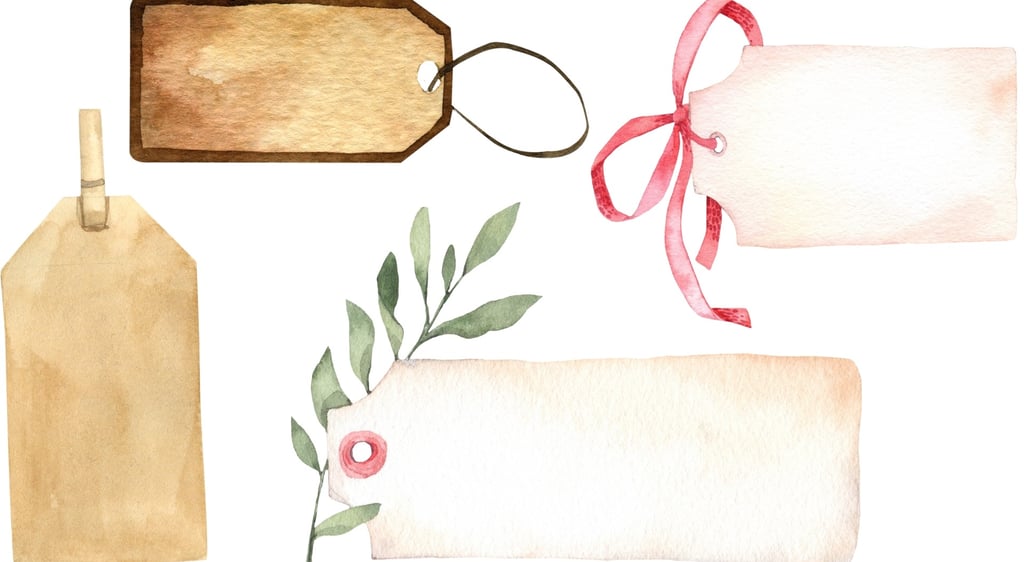No Label, No Problem… or Total Chaos?
JUST ASKINGLOVE
Victoria Guillou
12/8/2024


© Colonne / Canva
This one is for Ivy - Ditch the labels if you want.
Ah, the allure of the no-label relationship. It’s freedom! It’s modern! It’s the romantic equivalent of a “choose your own adventure” book, except the only adventure is figuring out whether you’re texting, dating, or just really committed to sharing memes at 2 a.m.
On paper, it’s genius. No labels mean no pressure, no expectations, no awkward conversations about “What are we?” It’s a concept built for a generation that fears commitment almost as much as it fears double-texting. In theory, it’s perfect. But in practice? It’s like agreeing to split a bill with someone who “forgot” their wallet—messy, confusing, and probably not what you signed up for.
The Seduction of No Labels
Let’s start with why we buy into this idea in the first place. The no-label relationship promises all the fun parts of a connection—flirty texts, stolen glances, late-night phone calls—without the emotional weight of a title. For some, it’s a rebellion against tradition. Why should relationships be defined by antiquated terms like boyfriend, girlfriend, or partner? Aren’t we evolved enough to just be without sticking a name tag on it?
For others, it’s a defense mechanism. If we don’t define it, then it can’t hurt us, right? No labels mean no heartbreak, no awkward breakup talk, no watching them change their status back to “single” on social media. It’s the ultimate way to stay cool, detached, and emotionally invincible—or so we tell ourselves. But here’s the catch: even the most label-averse among us eventually want some clarity. Because while “no label” sounds fun, what the hell does it actually mean?
The Reality of Label-Free Love
Picture this: you’re seeing someone, but there’s no official title. You’re having fun, but somewhere between “hanging out” and “spending every weekend together,” you start to wonder—Is this casual? Are we exclusive? Do I ask, or does that make me sound clingy? The problem with no labels is that they’re inherently ambiguous. One person might think it’s a fun, low-pressure situation; the other might see it as a slow march toward exclusivity. And if you’re not on the same page, it’s only a matter of time before things get complicated.
Suddenly, you’re overanalyzing every text, every emoji, every slightly-too-long pause between messages. Did that heart emoji mean love or just like-like? Are they busy, or are they just not that into you? In a no-label relationship, even the smallest interactions can feel like a game of romantic charades—and nobody likes losing at charades.
The Label Isn’t the Problem
But no one wants to admit: the issue isn’t the label itself. It’s what the label—or lack of one—represents. Labels, for all their supposed rigidity, are really just communication tools. They’re shorthand for defining how you feel about someone and what you want from the relationship. Without them, you’re stuck in a constant state of guessing, hoping, and probably over-Googling “signs they’re into you.” But the thing is, slapping a label on something doesn’t automatically make it better. A relationship with a title but no effort is just as meaningless as one without a label at all. What matters is the honesty and intention behind the connection.
Finding the Sweet Spot
So, where does that leave us? Is the no-label relationship doomed to fail, or can it actually work? It depends. If both people are truly on the same page—clear about their feelings, their expectations, and their boundaries—then who needs a label? But if one of you is secretly hoping the other will just commit already, then you’re not in a no-label relationship. You’re in denial. The key is to stop romanticizing the ambiguity. Relationships, like good wine and bad exes, need clarity to thrive. Whether you call it dating, hanging out, or just a thing, the label doesn’t matter as much as the understanding behind it. Because at the end of the day, love isn’t about the words you use to describe it—it’s about how it feels, what it gives you, and whether it helps you grow.
Just make sure you’re both writing the same story, even if you’re calling it something different.
Want to speak about something precisely?
Just tell me, I'll (or we ?) write about it...

